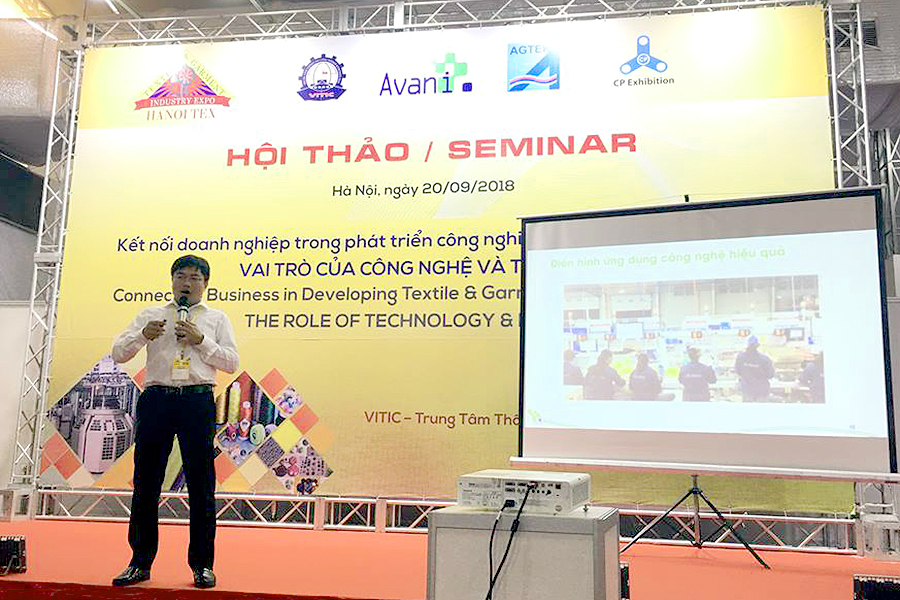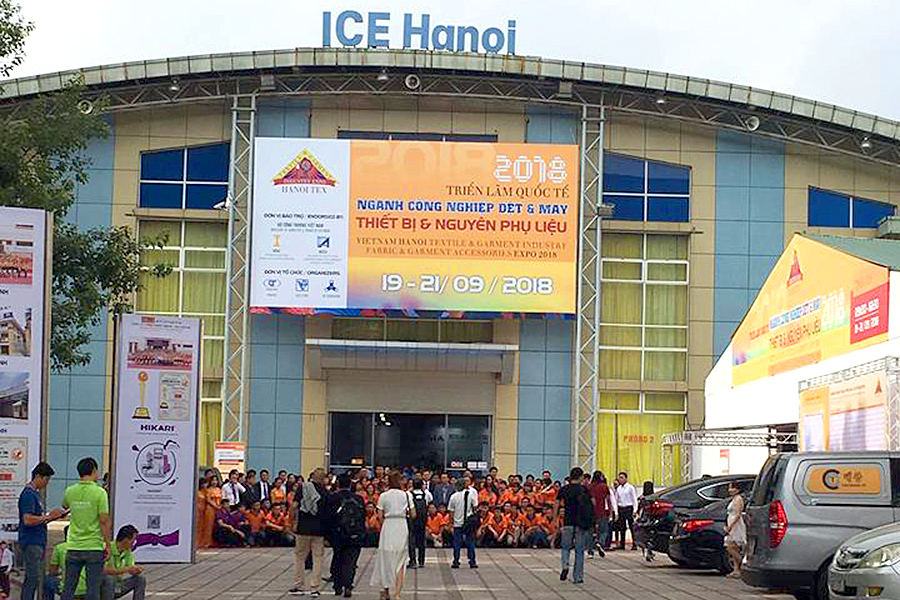
When talking about technology, today’s concept is often referred to as Industrial Revolution 4.0. But what is the nature and how it affects the industry in general, the textile & garments industry in particular is something that needs to be continuously explored, shared and discussed.
The Industrial Revolution 4.0 changes the thinking and traditional way of doing business and manufacturing for all industries. It changes the way we operate our global supply chains, from customer seek and care, to logistics coordination and vendor orders. It also change the way of operating manufacturing, applying technology to improve productivity and supply capacity, reduce costs, ensure good sources of raw materials, stable quality output.

However, it is impossible to apply automation in a thorough and consistent manner with current conditions of finance, technologyand human resources. Therefore, step by step approaching “smart manufacturing” is the direction for manufacturing in general and textiles in particular in the current period.
The “smart manufacturing” solution includes the deployment of sensor systems at each point of operation to collect information and concurrent connections to form an instant and complete data warehouse to help analysis and performance evaluation. From these analyzes, the manager knows the ineffective points, wastes and losts… to gradually improve and improve the efficiency of equipment utilization, thereby improving the productivity of labor, capacity to supply and improve the competitiveness of enterprises.
At the workshop, delegates from Textile and Garment companies were very interested in the indicators that affect the efficiency of equipment use and how to improve, ask questions and discuss. This shows that businesses are ready to open their minds for think and apply technology to manufacturing. This is an important basis for taking steps to improve production efficiency and adapt to the development of the 4.0 era.

Looking at the booths at HanoiTex 2018, the machines and equipment for manufacturing are ready to integrate and adapt to the Internet of Things. That also confirms once again: the trend of Industrial Revolution 4.0 and smart manufacturing is taking place every second around us as we breathe the air. We need to study, apply appropriate and flexible steps to adapt, sustain and develop sustainably without being left behind.